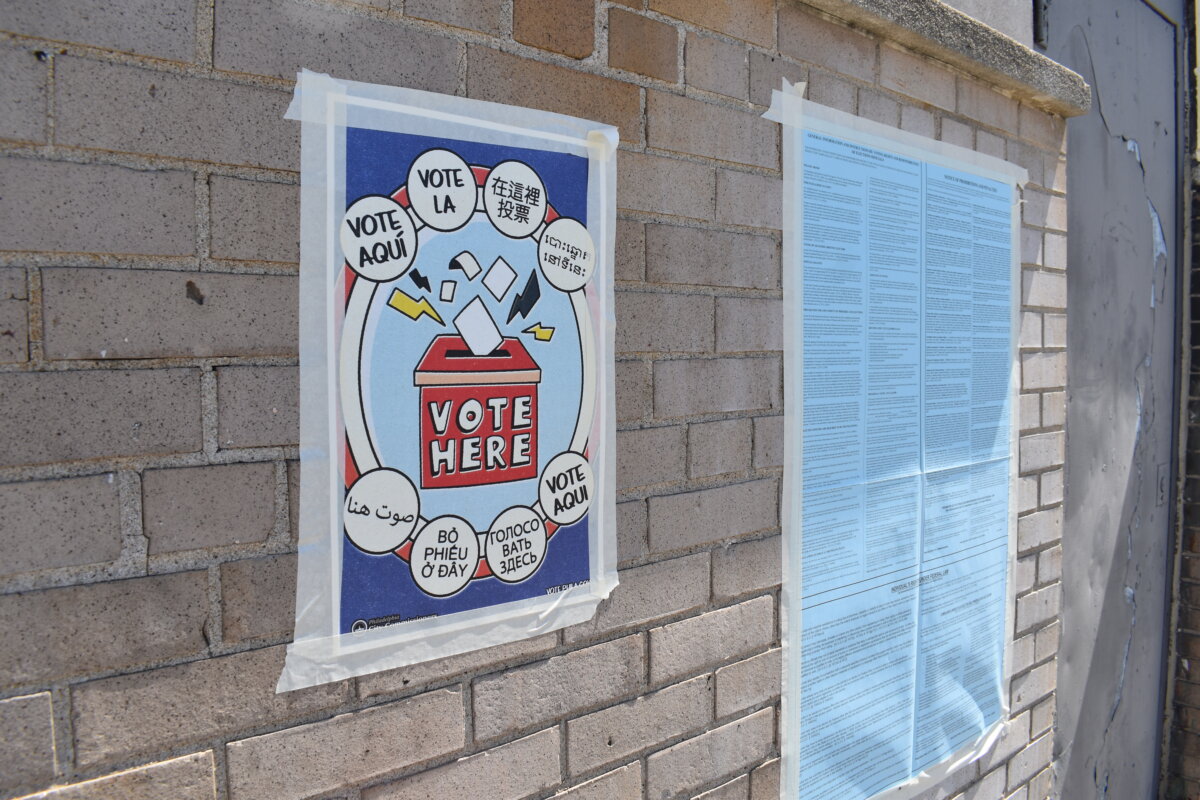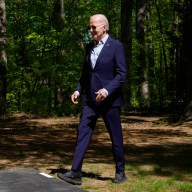 Rebecca Hall plays a lawyer uncovering government malfeasance in “Closed Circuit.”
Rebecca Hall plays a lawyer uncovering government malfeasance in “Closed Circuit.”
Credit: Getty Images
Rebecca Hall comes from fancy pedigree: Her father is Peter Hall, the renowned English theater director. Naturally she fell into acting, and has made a name jumping between theater and film, playing often (but not always) reserved, even repressed, but always brainy women in “The Prestige,” “Vicky Cristina Barcelona,” “Please Give” and “The Town.” In “Closed Circuit,” she once again goes smart and remote, playing a magistrate whose snooping into a terrorist plot uncovers a possible conspiracy, plus issues surrounding civil liberties, fair trials and government accountability.
What drew you to this: the role or the subject?
It was both. I thought the subject matter was such that it felt very — obviously — timely, and something that people needed to understand. And I thought it did it well. Trying to explain complicated legal procedures could end up being really dry.
What did you learn from this script and research?
The actual specifics of closed court proceedings was something that was very new to me. The British justice system is predicated on a rule of law and the notion of every person’s right to a fair trial. The very definition of a closed court is it’s not at all fair, because the defendant isn’t around in the room to hear it, so he can’t contest it.
Researching court proceedings sounds like it has the potential to be quite boring.
You’d be surprised. I became a bit of a courtroom junkie. I’m always interested in people watching. And it’s rare that I have something as concrete and a profession that’s entirely new to me to watch.
Do you tend to immerse yourself in research and the Stanislavski method when taking roles?
I don’t really believe in the method, but I believe in a method, and my method is different for every job. It’s probably much more of the method than I’d care to admit. It’s a combination of things: saturation in the world of the script and finding the daily life of the character. I’ll do weird, nerdy things like make a playlist or find each character’s own perfume. There are levels of going down the rabbit hole. And there are jobs I’ve gone far, far down and I don’t know how I’m going to get out. And there are others ones I skirted around the first level.
What was on your “Closed Circuit” character’s playlist?
She had a lot of classical, but she had mostly contemporary Scandinavian jazz. It reflected her character. She struck me as someone who was very emotional but never showed it. I wanted that sort of reserve in her music taste. They wouldn’t go so far as to have lyrics or be specific about what it’s achieving, but definitely be brainy at the same time — esoteric, a little bit removed, occasionally very moving but in a subtle way.
You play a lot of inhibited characters. Is it easier to do that than uninhibited characters?
No. Emotionally it’s a lot easier to play uninhibited — characters who everything they’re going through they have it on the outside. It’s easier to let go of, in a weird way, because they get their emotions out. Whereas characters where you have to hold that emotion inside, and you don’t have the catharsis of letting it out — those are the ones where I go home, sit in the corner and want to have a little bit of a cry.
Non-actors make a lot out of actors doing film and stage. Is the methodology that different?
I don’t think fundamentally there are any differences between the skills. I know that sounds like a daft thing to say, but once you’ve worked around how to project your voice, all that’s exactly the same. It’s flexing a different muscle, but it’s still the same goal. I strongly think that doing a fair amount of theater makes me better at film, and doing a fair mount of film makes me better at theater.
What about TV, of which you’ve done a little bit?
With TV, you’ve got time on your side to really develop a character. I love doing a five-hour miniseries where I have the luxury of knowing I could be a complete and utter cow for two hours, but by hour four I’d be able to show another side. I don’t have to constantly try to show every side of the character in one episode. I don’t think I could do that over a long time. Miniseries — great. I think I’m too restless and curious about human behavior to sit with a character for a long, long time.
Another thing non-actors assume is difficult are accents.
It’s one of those things that’s fundamentally good or bad. Everyone can tell if someone’s doing a good or a bad accent. For me, I think it is very important. I don’t know why, but I have a thing about a character voice — whether it’s pitched high or low or how they choose to speak. That’s often my first starting point with a character, the voice.
Your mom was from Michigan and you hold joint citizenship in England and America. You also once admitted you didn’t have a home and bounce from place to place. Is that still true?
Tragically that’s no longer true. I did actually buy a flat in London. Now I have roots. How much time I actually spend in it is another thing.
















